Top Picks: Discover the Best CBD for Beginners and How to Use It
Written by: Hunter Podell, Subject Matter Expert and Website Founder
Published: March 15, 2024; Last updated: April 6, 2024
- 1. Key Takeaways
- 2. Understanding CBD: A Primer for New Users
- 3. Starting with CBD: Product Types Explained
- 3.1 The Appeal of CBD Oil Drops
- 3.2 Why Choose CBD Capsules?
- 3.3 The Soothing Touch of CBD Topicals
- 4. Dosage Decoded: How Much CBD Should You Take?
- 5. Selecting Your Spectrum: Full Spectrum vs. Broad Spectrum vs. Isolate
- 6. The Legality of CBD: Staying Informed
- 7. Quality Matters: Identifying High-Quality CBD Brands
- 8. Incorporating CBD into Your Routine
- 9. Personalized CBD: Finding What Works for You
- 10. Navigating CBD Myths and Facts
- 11. Summary
- 12. Frequently Asked Questions
- 12.1 What CBD is best for beginners?
- 12.2 How much CBD should a beginner start with?
- 12.3 What form of CBD is most effective?
- 12.4 What is the difference between CBD and THC?
- 12.5 What are the different types of CBD products available?
- 13. References
Are you starting your CBD journey? Our straightforward guide highlights the best CBD for beginners, teaching you how to choose and use the best CBD products designed for newcomers with confidence. Learn the basics of CBD, from selecting the right product to understanding dosages to begin responsibly and with peace of mind.
Key Takeaways
CBD is a non-psychoactive compound from the cannabis plant with potential health benefits such as pain relief, anxiety reduction, and improved sleep. It’s essential to consult with a healthcare provider before starting use.
Various CBD products, including tinctures, capsules, and topicals, cater to different needs and preferences, with tinctures offering precise dosing and versatility, capsules providing convenience, and topicals offering localized relief.
CBD dosage is personal and should be started low and increased gradually, with full spectrum, broad spectrum, and isolate options available to tailor the experience; additionally, staying informed on legal aspects and choosing high-quality, third-party tested products is crucial for safe use.
Understanding CBD: A Primer for New Users
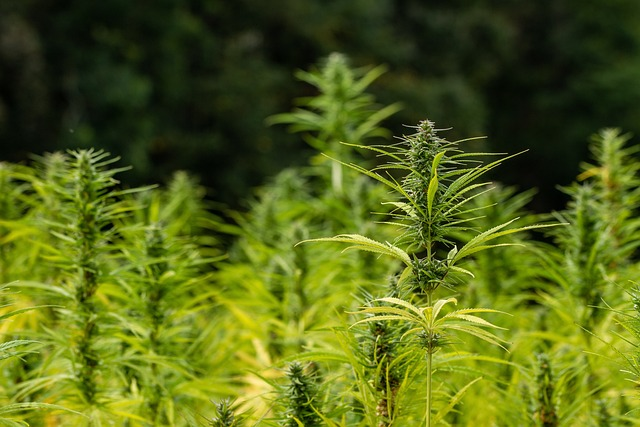
CBD, or cannabidiol, is a chemical compound derived from the cannabis sativa plant, also known as hemp. Unlike THC (tetrahydrocannabinol), the primary psychoactive compound found in cannabis, CBD does not produce a “high” feeling. This is a critical distinction, as it allows users to enjoy the potential benefits of CBD without the psychoactive effects often associated with cannabis. Some of the potential benefits of CBD include:
Pain relief ⁴
Reduced anxiety and depression ¹
Improved sleep ¹
Anti-inflammatory properties ²
Neuroprotective ³ properties It’s essential to note that more research is needed to understand CBD’s potential benefits and risks fully. It’s always a good idea to consult a healthcare professional before starting any new supplement or treatment.
Interestingly, CBD is frequently derived from the hemp plant, a variant of cannabis sativa known for its low THC content. By legal definition, hemp contains less than 0.3% THC, making it distinct from marijuana, which has higher levels of THC.
To further complicate matters, hemp seed oil is derived from the seeds of the cannabis sativa plant. Hemp seed oil contains no CBD but is rich in omega-3 and omega-6 fatty acids, offering different benefits than CBD oil extracted from tplant’st’s stalks, leaves, and flowers.
Grasping these distinctions is vital for CBD for beginners who want to unlock the benefits of CBD without the undesired side effects.
Starting with CBD: Product Types Explained
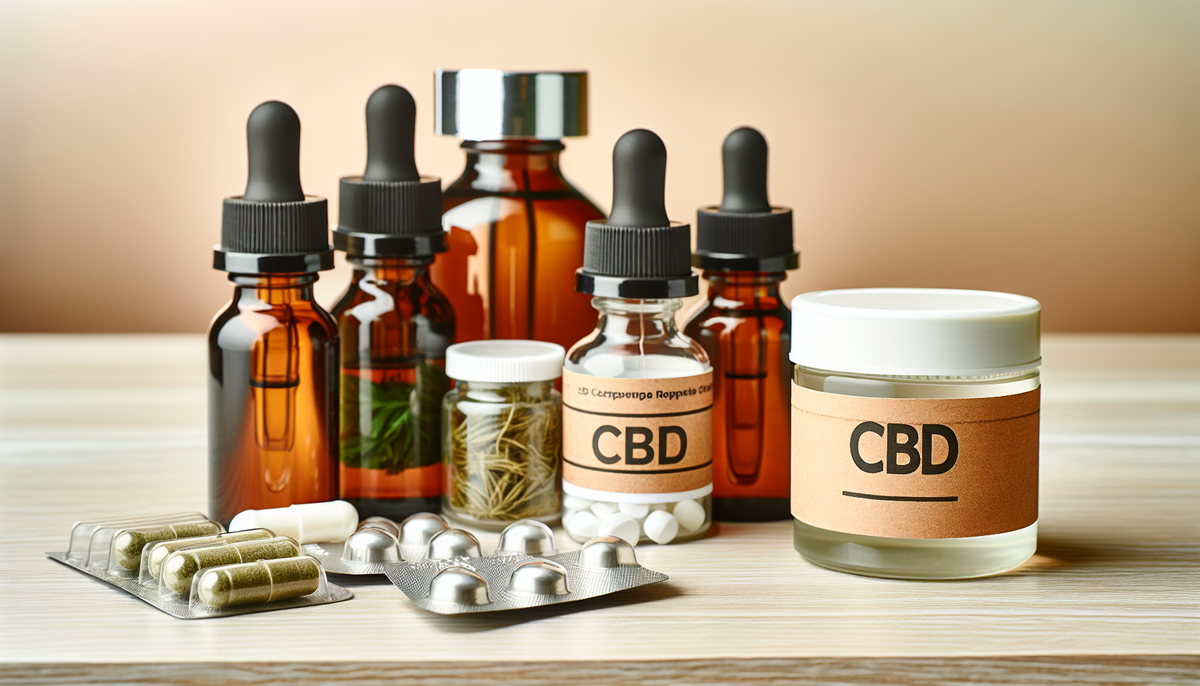
Stepping into the world of CBD can be a bit overwhelming with the myriad of product types available. Don’t worry; we’re here to simplify things for you. CBD products come in various forms, including tinctures, capsules, and topicals, each offering unique benefits and methods of consumption. Being aware of the advantages and disadvantages of each will guide you in choosing the most suitable product for your needs.
CBD tinctures, or CBD oil drops, are administered orally using a dropper, facilitating accurate dosage. They can also be applied topically, offering systemic and localized effects versatility. CBD oils, including CBD tincture, have gained popularity due to their potential benefits.
CBD capsules, on the other hand, offer a convenient and consistent way to consume CBD, with each capsule containing a pre-measured CBD dosage.
Lastly, CBD topicals encompass a range of products, including lotions, gels, and sprays, which are applied directly to the skin for targeted relief.
The Appeal of CBD Oil Drops
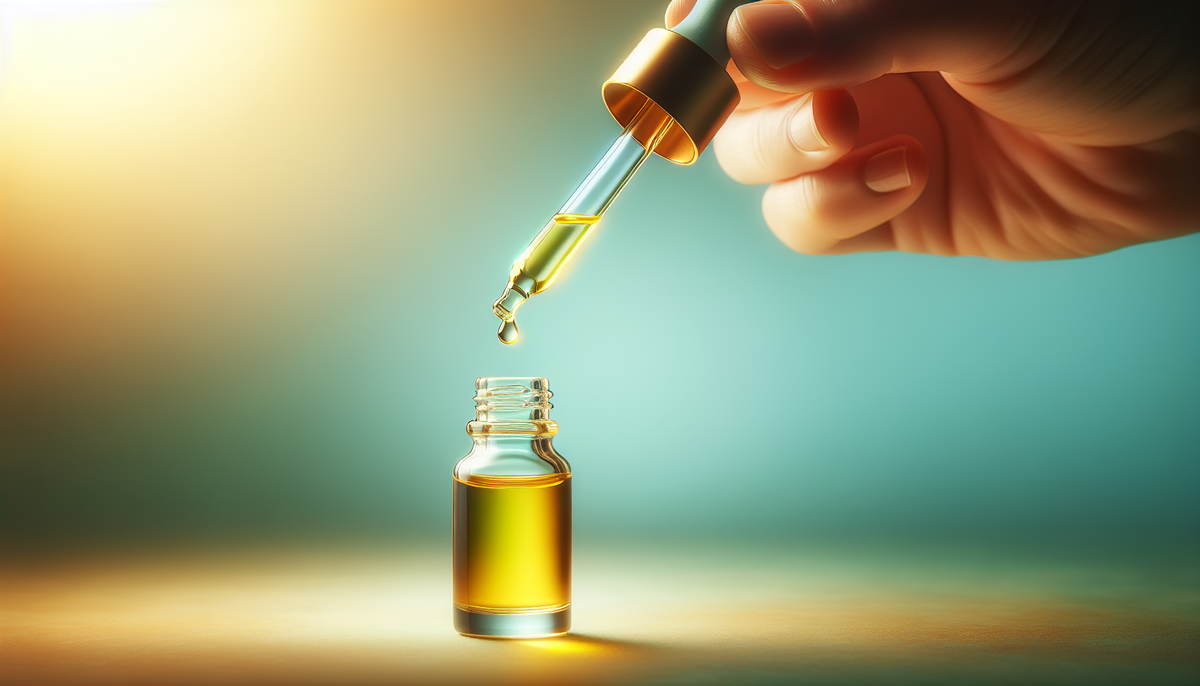
CBD oil drops are a popular choice, especially for beginners, and for good reasons. Here are some benefits of using CBD oil drops:
They offer a straightforward approach to dosing.
Thanks to the accompanying droppers in glass bottles, users can measure their CBD intake accurately, promoting precise dosage control.
This aspect is beautiful to novices still determining their ideal dosage.
Additionally, CBD oil drops offer versatility. They come in various concentrations, allowing beginners to start with low doses and gradually increase their dosage based on their responses. Such adaptability renders CBD oil drops a welcoming choice for those unacquainted with CBD, aiming for a customized approach to their CBD journey.
Why Choose CBD Capsules?
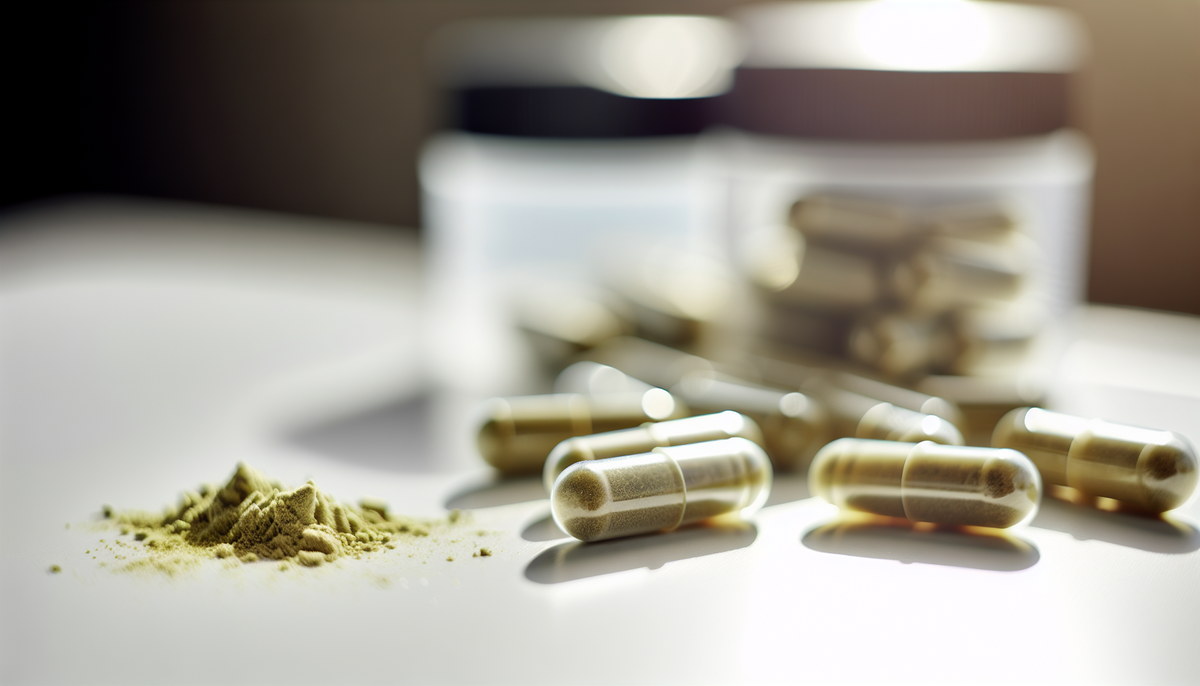
If convenience and consistency are what you’re after, CBD capsules may be the perfect fit. These capsules offer a no-fuss, beginner-friendly method as theyn’tn’t require any extra equipment for dosing. Plus, they are discreet, making them easy to incorporate into your daily routine, whether at home or on the go.
CBD capsules offer several advantages:
They are pre-dosed, ensuring a consistent amount of CBD intake each time.
They eliminate the inconsistency present in other consumption methods.
They are generally tasteless, making them an attractive option for those who may dislike the natural flavor of hemp found in CBD oil.
They gradually dissolve in the stomach, delivering CBD effects all at once.
They provide an uncomplicated consumption experience.
The Soothing Touch of CBD Topicals
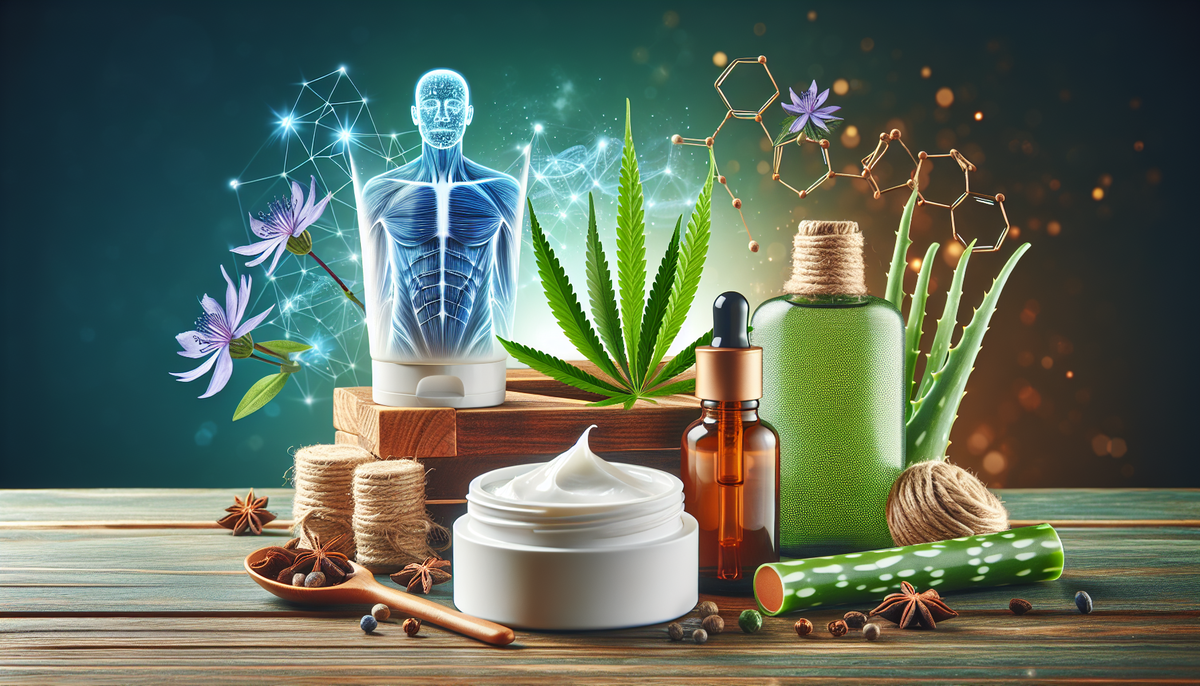
CBD topicals are a game-changer for those seeking localized relief without systemic effects. These products, which encompass:
creams
lotions
serums
muscle balms
Are applied directly to the skin. They interact with cannabinoid receptors on the skin surface, targeting sore muscles or areas with tension and providing near-immediate relief for pain and inflammation without entering the bloodstream.
However, the benefits of CBD topicals extend beyond just pain relief. Combined with menthol and essential oils, these products offer a range of benefits, from soothing and moisturizing the skin to providing immediate cooling or warming relief beneficial for muscle soreness. Incorporating CBD topicals into daily health habits can enhance skin health and localized relief, making them a valuable addition to any wellness routine.
Dosage Decoded: How Much CBD Should You Take?
In the realm of CBD, determining the correct dosage is fundamental. You’re a beginner. It’s advisable to focus on starting small and proceed slowly. The goal is to observe the effects of the dose before making any increases. Patience is critical in this scenario, as discerning the effects and deciding on dosage adjustments may take time.
Typically, new CBD users are advised to start with the lowest potency products, between 5 and 25 mg. After observing the effects, begin with a small serving and consider scaling up if necessary. Personal responses to CBD are variable, so adjusting serving size is essential based on individual experience.
Wait up to an hour before assessing the effect of the dose, especially when using edibles or sublingual oils. Monitoring how the body reacts to CBD over time and making precise adjustments with tinctures are crucial for personalizing the dosage.
Selecting Your Spectrum: Full Spectrum vs. Broad Spectrum vs. Isolate
Comprehending the distinction between full spectrum, broad spectrum, and isolate CBD products is essential in choosing the product that best fits your needs. Total Spectrum CBD includes all naturally occurring compounds in the cannabis plant, including THC, other cannabinoids like CBC, CBG, CBN, and a variety of terpenes and flavonoids.
On the other hand, Broad Spectrum CBD is composed of most compounds from the cannabis plant, with each isolated and recombined in specific ratios but with THC removed. CBD Isolate is the purest form of CBD, with all other cannabinoids, terpenes, flavonoids, and minerals extracted.
The theory of the entourage effect suggests that the combined interaction of cannabis compounds, including THC, offers more therapeutic benefits than individual components on their own, which is a notable feature of Full Spectrum CBD. Broad Spectrum CBD products retain beneficial cannabinoids and terpenes while removing THC, serving as an intermediary between Full Spectrum and Isolate, which might be less potent due to the absence of the entourage effect.
The Legality of CBD: Staying Informed
The legality of CBD is a complex and rapidly evolving field. In the United States, hemp-derived CBD is legal at the federal level, as long as the cannabis plants and derivatives contain no more than 0.3 percent THC on a dry weight basis. However, it remains federally illegal to introduce into interstate commerce any food to which CBD or THC has been added. The FDA has approved only one CBD drug product, Epidiolex, and any other CBD products that claim to prevent, diagnose, treat, or cure diseases without FDA approval face warnings, with the ever-changing landscapists essential to stay informed about whether CBD legal regulations affect the availability and use of CBD products.
In the UK, different rules apply. CBD products are regulated as novel foods and must comply with safety and labeling regulations. The UK Food Standards Agency advises a maximum daily intake of 10mg of CBD from food sources. On the other hand, hemp seed-derived ingredients such as hulled hemp seed, hemp seed protein powder, and hemp seed oil are legally marketable in human foods in the USA, given they comply with all other requirements. Customers should be wary of products on unapproved platforms, which may market hempseed oil as CBD, and brands with an FDA warning letter may be less reliable.
Quality Matters: Identifying High-Quality CBD Brands
Not all CBD products are created equal. As a consumer, the ability to discern high-quality CBD brands is significant. High-quality CBD products often possess organic certification, such as the USDA seal, and a clear Certificate of Analysis (COA) from third-party testing. This indicates the product’s cannabinoid potency and the absence of harmful contaminants.
Responsible brands manifest their commitment to quality through complete transparency about their manufacturing processes and customer-based policies like satisfaction guarantees or return options. A reputable CBD brand provides evidence of third-party testing and articulates clear information about hemp cultivation practices and extraction methods. This ensures consumers of their product integrity and manufacturing standards.
Incorporating CBD into Your Routine
After deciding to try CBD, your subsequent action should be to integrate it into your regimen. There are countless ways to do this; the best method depends on your personal preferences and wellness goals. Start your day by sublingually using a CBD oil tincture; hold it under your tongue for 30 to 60 seconds before swallowing for quick bloodstream entry. For relaxation at night, consider incorporating CBD products such as CBD with melatonin into your evening routine to enhance sleep quality.
CBD can also be integrated into your morning routine alongside other supplements by adding CBD oil to your morning coffee or taking CBD capsules with daily vitamins. Apply topical CBD products like lotions or gels post-physical activity for targeted relief and supporting recovery. Consistent CBD use may assist in heart health maintenance by contributing to lowered blood pressure and improved artery function.
Ultimately, the key is personalizing CBD usage by mixing various forms, like gummies, capsules, and topicals, to most effectively meet your wellness goals.
Personalized CBD: Finding What Works for You
CBD is not a one-size-fits-all solution. Adjusting your CBD intake to meet your needs is vital for achieving the best outcomes. For instance, if you’re seeking better sleep quality, starting with 5 to 10 mg of CBD daily and gradually increasing the amount may improve insomnia symptoms. Using CBD an hour before bedtime could lead to a more restful sleep.
You’re dealing with digestive concerns; CBD, particularly in the form of gummies and oils, has been shown to manage symptoms of irritable bowel syndrome due to its anti-inflammatory properties. Full-spectrum CBD products containing various cannabinoids might be preferable for easing digestive symptoms, leveraging the entourage effect.
Moreover, regular use of CBD might assist those dealing with anxiety or depression, offering a natural choice for their mental health regimen.
Navigating CBD Myths and Facts
Misconceptions about CBD are also on the rise, reflecting its increasing popularity. A prevalent misconception is the supposed psychoactive nature of CBD, alleged to induce a high similar to THC. However, the reality is that CBD is not psychoactive and does not produce a high. Full-spectrum CBD may cause a euphoric feeling only if taken in large doses of potent products, but small doses are unlikely to be psychoactive. Broad-spectrum CBD contains other cannabinoids, terpenes, and flavonoids but not THC, ensuring no psychoactive effects.
Another common misconception is that using CBD will result in a positive drug test. The truth is that using pure CBD products without THC should not result in a positive drug test, as the tests are typically designed to detect THC. However, some CBD products may have trace amounts of THC, which could potentially trigger positive results on susceptible drug tests.
Contrary to the myth that CBD is specious, it contains active ingredients that have been shown to offer therapeutic effects, including reducing inflammation, pain, and anxiety and improving sleep.
Summary
CBD offers potential benefits, from pain relief and improved sleep to enhanced skin health and relief from digestive issues. Whether you’re a beginner just starting your journey or a seasoned user seeking to deepen your understanding, understanding CBD entirely is the key to getting the most out of CBD. From understanding the basics of CBD and the various product types to personalized usage and the importance of choosing high-quality brands, we hope this guide has provided you with a comprehensive overview of all CBD. Remember, CBD is not a one-size-fits-all solution, so take the time to understand your unique needs and preferences and enjoy discovering what works best for you.
Frequently Asked Questions
What CBD is best for beginners?
For beginners, CBD oil or tinctures with precise measurements are recommended. Broad-spectrum CBD is also a popular option, especially for those sensitive to THC or unable to consume THC due to work restrictions.
How much CBD should a beginner start with?
Beginners should start with a low dose, around 10mg, and gradually increase by 5mg every 2 to 3 days until finding the right amount that effectively treats their symptoms.
What form of CBD is most effective?
The most effective form of CBD varies for each person. Full-spectrum and broad-spectrum CBD, containing additional cannabinoids, terpenes, and flavonoids, interact with the body’s endocannabinoid system, potentially enhancing their effectiveness.
What is the difference between CBD and THC?
The critical difference between CBD and THC is that THC causes a high feeling, whereas CBD does not produce a high. Therefore, CBD is non-psychoactive, while THC is psychoactive.
What are the different types of CBD products available?
CBD products are available in various forms, such as tinctures, capsules, and topicals like creams and lotions, each offering distinct benefits and consumption methods. Choose the form that best suits your needs.
References
Shannon, S., Lewis, N., Lee, H., & Hughes, S. (2019). Cannabidiol in Anxiety and Sleep: A Large Case Series. The Permanente journal, 23, 18–041. https://doi.org/10.7812/TPP/18-041
Atalay, S., Jarocka-Karpowicz, I., & Skrzydlewska, E. (2019). Antioxidative and Anti-Inflammatory Properties of Cannabidiol. Antioxidants (Basel, Switzerland), 9(1), 21. https://doi.org/10.3390/antiox9010021
Fernández-Ruiz, J., Sagredo, O., Pazos, M. R., García, C., Pertwee, R., Mechoulam, R., & Martínez-Orgado, J. (2013). Cannabidiol for neurodegenerative disorders: important new clinical applications for this phytocannabinoid?. British journal of clinical pharmacology, 75(2), 323–333. https://doi.org/10.1111/j.1365-2125.2012.04341.x
Schilling, J. M., Hughes, C. G., Wallace, M. S., Sexton, M., Backonja, M., & Moeller-Bertram, T. (2021). Cannabidiol as a Treatment for Chronic Pain: A Survey of Patients’ Perspectives and Attitudes. Journal of pain research, 14, 1241–1250. https://doi.org/10.2147/JPR.S278718

Written by Hunter Podell - Subject Matter Expert and Website Founder
Hunter has 8+ years of experience as a content writer and digital marketer. Earning his chops marketing in the healthcare space for over 5 years, Hunter is extremely familiar with the rules and regulations required to deliver high quality content that answers the user's needs while adhering to strict guidelines.
Join the CBDeals Club!
Get 10% off your first order and receive our best and exclusive promotions directly to your inbox!



